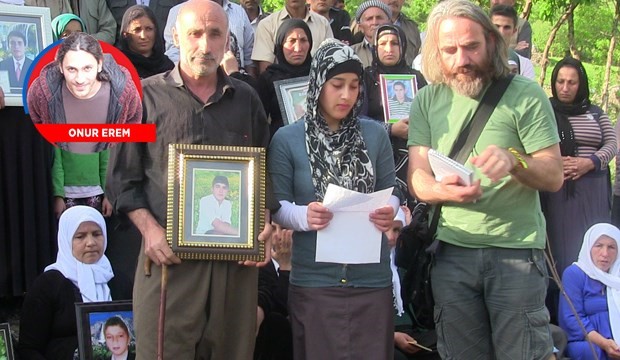Turkish court says: "We think that your thought isn’t a thought – so you can’t benefit from freedom of thought!"

ONUR EREM / @onurerem - BİRGÜN NEWSPAPER
Turkish courts have released the detailed ruling against Yannis Vasilis Yaylali, a conscientious objector from Turkey who was convicted for violating a highly controversial penal code, Article 318 – “alienating public from military service”. The details show that Turkish courts are having a go at philosophy in order to sentence Yaylali to 7 months and 15 days in prison. The court simply argued that Yaylali’s thoughts are not real thoughts, thus he can’t benefit from freedom of thought!
In the ruling of the Uludere Criminal Court on 6 January 2016, the court that put on trial Yaylali for his columns and articles on news website demokrathaber.com, argued that “Although Yaylali says that war is bad and harmful, what he has written is raw information. We have noticed that Yaylali didn’t read and research enough about the issue that he’s writing about – he has some information about conscientious objection but he didn’t offer any alternative on what will happen after the armies are abolished”, although Yaylali didn’t call for abolition of armies but rather abolition of conscription in his articles.
NO THOUGHT, NO FREEDOM
The court claimed that to talk about thought, there must be thesis, anti-thesis and synthesis – and went on with their claims by saying that Yaylali’s articles doesn’t contain any of them. “Thus”, the court declared, “the discourses that are built on raw information can’t be regarded as ideas or thoughts. And because there’s no thought in Yaylali’s criminal act, he can’t benefit from freedom of thought”.
The court also ruled that “It is clear that wars are bad. But it’s also clear that in today’s international system of states, the states need armies in order to provide public order”, without referring to the 22 countries that doesn’t have a standing army.
ECHR RULES THE OPPOSITE
While the court argued that Article 318 wasn’t violating international treaties, Turkey has lost many cases in the European Court of Human Rights because of article 318. “Turkey is the only country in Europe which doesn’t recognize conscientious objection. There must be a civilian alternative to military conscription” says Turkey’s ex-judge in the ECHR, Riza Turmen. Turmen says that he has submitted law drafts during his period in the Turkish parliament, but the government didn’t even discuss it. “As long as Turkey doesn’t recognise conscientious objection, Turkey will lose these cases in ECHR” says Riza.
'THEY DIDN'T EVEN LISTEN TO ME'
Yannis Vasilis Yaylali commented on the decision by saying “Courts can’t be places that can give decisions on what can be regarded as thoughts! The judges didn’t even listen to me during my defence. They had already decided on the ruling before the hearing. The courts in Turkey became tools of government, thus tools of war. They want to silence all the voices which are against wars and the war in Kurdistan in particular”.
'STATE IS THE ONE WHO ALIENATES'
Gökhan Soysal, co-president of the Conscientious Objection Association, was also planning to attend the hearing. But he couldn’t be there because of the curfew that the government declared in the region around district Uludere. “The war and these curfews took the right to a fair trial from Yaylali” says Soysal, “Uludere is the district where the state committed the massacre that killed 34 civilians with bombs dropped by fighter jets. It is absurd that Yaylali is convicted while the state itself is alienating the people from military service by such massacres. But the main motivation is to oppress the critical voices”.
Source: birgun.net
Add new comment